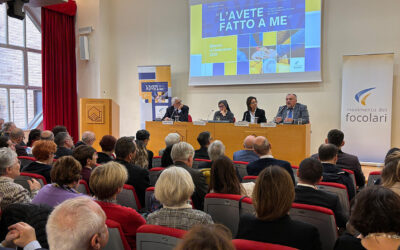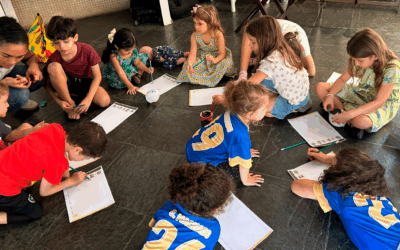 When she referred to ecumenical dialogue, Chiara Lubich used to talk of dialogue of life, of the people. Anyway, about something that is not born only from theological reflection, but from rubbing against each other, from visiting each other every day, and that during the trials of life puts into practice the teachings of the Gospel, common to all Christians, regarding the love of our neighbour; a love that knows no ecclesial confines of any type. Referring to the general consent that is born in such a context, Chiara Lubich had said: “We know how in history other ecumenical undertakings have failed, because this consent was missing, it is essential to unity.” When the Focolare Movement began to expand in Germany, the contacts with members other churches were immediate. And later, when it appeared possible to even build a citadel on the model of Loppiano, in Italy, but inhabited by Lutherans and Catholics, the idea seemed the answer to a dream that of living together a life based on Christian love. In 1968 this idea took concrete form at Ottmaring, in the vicinity of Ausburg. The citadel comprises 30 constructions and a centre for spirituality at the service of the many visitors that come to ascertain on the spot this original ecumenical living together. Characteristic of the life in the ecumenical centre is the unity in Christ and the ecclesial diversity of the members living in a spirit of reconciliation. Around 140 inhabitants live at Ottmaring; they belong to the Focolare Movement and the Fraternity of Communitarian Life (Bruderschaft von gemeinsamen Leben) that has its origins in the evangelical world. In both groups there are youths, adults, families and communities. All come from profoundly diverse experiences of faith and ecclesial traditions. There are also numerous nationalities represented, a diversity that is enriching.
When she referred to ecumenical dialogue, Chiara Lubich used to talk of dialogue of life, of the people. Anyway, about something that is not born only from theological reflection, but from rubbing against each other, from visiting each other every day, and that during the trials of life puts into practice the teachings of the Gospel, common to all Christians, regarding the love of our neighbour; a love that knows no ecclesial confines of any type. Referring to the general consent that is born in such a context, Chiara Lubich had said: “We know how in history other ecumenical undertakings have failed, because this consent was missing, it is essential to unity.” When the Focolare Movement began to expand in Germany, the contacts with members other churches were immediate. And later, when it appeared possible to even build a citadel on the model of Loppiano, in Italy, but inhabited by Lutherans and Catholics, the idea seemed the answer to a dream that of living together a life based on Christian love. In 1968 this idea took concrete form at Ottmaring, in the vicinity of Ausburg. The citadel comprises 30 constructions and a centre for spirituality at the service of the many visitors that come to ascertain on the spot this original ecumenical living together. Characteristic of the life in the ecumenical centre is the unity in Christ and the ecclesial diversity of the members living in a spirit of reconciliation. Around 140 inhabitants live at Ottmaring; they belong to the Focolare Movement and the Fraternity of Communitarian Life (Bruderschaft von gemeinsamen Leben) that has its origins in the evangelical world. In both groups there are youths, adults, families and communities. All come from profoundly diverse experiences of faith and ecclesial traditions. There are also numerous nationalities represented, a diversity that is enriching. Devise some peace activities!
Devise some peace activities!




0 Comments